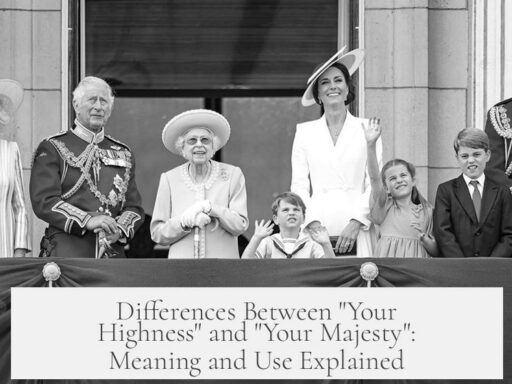The British decided to support the creation of a Jewish state primarily due to a mix of geopolitical strategy, humanitarian sympathy, and a belief in Jewish influence during World War I. Their backing emerged from several interconnected factors, notably the Britain’s wartime needs, genuine support for Zionism, and strategic interests in the Middle East.
During World War I, Britain sought allies wherever possible. They believed—although inaccurately—that Jews held significant sway in global finance, especially in the United States. This belief spurred hope among British leaders that supporting Zionism could help attract American support for the war effort. Unlike prevailing biases, British attitudes leaned more positive, viewing Jewish economic elites as potential allies rather than threats.
Beyond strategy, many British leaders held a humanitarian concern for the Jewish people. The persecution of Jews in Europe was well-known, with recent events like the Dreyfus Affair in France and Russian pogroms highlighting ongoing discrimination and violence. This awareness fostered genuine sympathy, motivating Britain to endorse Zionist aspirations as a form of protection and justice.
Britain also considered its imperial interests. They hoped establishing a friendly European presence adjacent to the Suez Canal would reinforce control and security over this vital route. Although this strategic aim was less influential and later proved overly optimistic, it contributed to Britain’s initial support.
| Factor | Details |
|---|---|
| Geopolitical Strategy | Seeking wartime allies; hoping Jewish support would influence U.S. involvement |
| British Philosemitism | Positive attitudes toward Jews compared to common prejudices |
| Humanitarian Sympathy | Reactions to European Jewish persecution; Zoinist cause inspired empathy |
| Security Interests | Desire to secure the Suez Canal by encouraging a friendly settlement |
In summary, Britain’s initial support for the creation of a Jewish state resulted from the complex intersection of wartime pragmatism, humanitarian concerns, and imperial strategy. This support was formalized by the 1917 Balfour Declaration but later shifted as realities on the ground changed and other priorities emerged.
- Britain aimed to secure allies by engaging Jewish support globally during WWI.
- Humanitarian concerns over Jewish persecution influenced British attitudes.
- Strategic goals included safeguarding the Suez Canal region.
- Balfour Declaration reflected these factors but did not guarantee unchanging policy.
Why Did the British Decide to Support the Creation of a Jewish State?

In short, Britain initially supported the creation of a Jewish state due to a mix of wartime strategy, positive views of Jewish influence, humanitarian sympathy, and geopolitical interests. However, this support shifted dramatically over time due to complex local tensions and international pressures.
Let’s unpack this fascinating, multi-layered story.
Britain’s Initial Support: A Strategic and Sympathetic Gamble
Back in the chaos of World War I, Britain was looking for every possible advantage. It saw the Zionist movement not just as a noble cause but as a potential strategic ally. The British believed that Jewish communities, especially in the United States, had significant business influence. Now, this belief veered into exaggeration territory—it was a bit of wishful thinking. Still, British leaders counted on these Jewish elites to sway the United States into joining the war. It was less sinister than it sounds—British leaders held a surprisingly positive attitude toward Jews, a stance termed “British philosemitism.”
The humanitarian angle also played a role. News of the harsh persecution of Jews in Eastern Europe was widespread. Events like the Dreyfus Affair in France and brutal pogroms in Russia were fresh in the British mind. Some British policymakers genuinely sympathized with the idea of a Jewish homeland where Jews could live free from persecution.
On top of this, there was a geopolitical motivation: Britain was keen to protect the Suez Canal, a crucial artery for its empire. Settling a friendly European population near the canal seemed like a good security move. Though this point was less critical and slightly over-optimistic, it added to the case for supporting a Jewish homeland.
When Good Intentions Meet Reality: The Shift Away from Support
So far, it sounds like a well-planned endorsement. But the actual situation on the ground tangled things up terribly.
After Britain received the Mandate over Palestine, large-scale Jewish immigration began. Initially, the influx was peaceful. However, the Palestinian Arab population reacted violently. There were multiple pogroms and attacks aimed at the Jewish settlers. Understandably, Jews began to arm themselves, escalating tensions further. The conflict kept worsening, making the whole region a powder keg.
Things didn’t improve politically either. Opposition to the Jewish immigration became a headline issue throughout the Arab world. This opposition turned Palestine from a strategic asset into a diplomatic and military headache for the British. The escalating unrest made Britain rethink its position.
The climax came during the 1936-1939 Arab revolt in Palestine. The British, with Jewish militias’ help, crushed the revolt but paid a political price: they shifted to placate the Arab population. The 1939 White Paper marked a clear break with Zionism. It placed strict limits on Jewish immigration, banned most Jewish land purchases, and promised an independent Palestinian state within ten years—no hint of a Jewish state.
This policy shift infuriated Jews in Palestine and sparked militant responses against British authorities. The White Paper symbolized Britain’s break with the Zionist cause. Relations soured, and the British found themselves on increasingly shaky ground in the Mandate.
1948 and Beyond: Independence Despite Britain, Not Because of It

Fast forward a decade: Britain’s direct influence in Palestine was dwindling. The Holocaust had just devastated European Jewry, intensifying the urgency for a Jewish homeland. Refugees streamed toward Palestine, often illegally due to British restrictions. Public relations disaster ensued for Britain, as global sympathy overwhelmingly favored the Jewish refugees.
International pressure intensified, especially from the United Nations. In 1947, the UN voted to partition Palestine into separate Jewish and Arab states. Britain declared it would not enforce this plan, choosing instead to withdraw. This abandonment meant the Jewish community had to defend themselves and claim independence by their own efforts. Israel officially declared independence in 1948, not because Britain granted it, but because the Jewish population fought for it.
What Can We Learn from This?
The British support for a Jewish state was never a simple or consistent story. It combined genuine sympathy, strategic calculations, and mistaken beliefs. Initially, support rested on the hope that backing Zionism would help win WWI and secure imperial interests.
Yet, realities on the ground — the fierce local opposition and growing geopolitical complications — pushed Britain away from its original stance. Britain’s policies shifted from endorsement to restrictions, culminating in the 1939 White Paper.
Ultimately, the creation of Israel was driven more by Jewish activism and international politics than by Britain’s ongoing support.
Isn’t it intriguing how international ambitions, wartime hopes, local conflicts, and humanitarian concerns all tangled to shape one of the 20th century’s most significant political changes? This tale reminds us that historical events are rarely straightforward. Instead, they are woven from diverse motives and shifting alliances.
Quick Recap:
- WWI caused Britain to seek allies; Jews were seen as influential, especially in the U.S.
- British philosemitism and sympathy for Jewish suffering bolstered support.
- Geopolitical hopes of securing the Suez Canal factored in.
- Violent Arab backlash and regional opposition soured Britain’s enthusiasm.
- The 1939 White Paper marked a policy reversal toward a Jewish state.
- Post-Holocaust activism and the UN partition plan led to Israel’s 1948 independence.
Bottom line: Britain’s initial support was a mix of strategy, sympathy, and political hope, but the eventual creation of Israel was forged through activism and international will more than British backing.
Curious about how these events still influence the region today? Stick around for more history unpacked!




